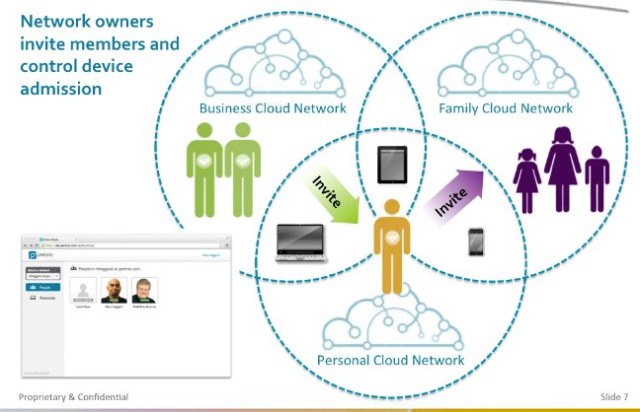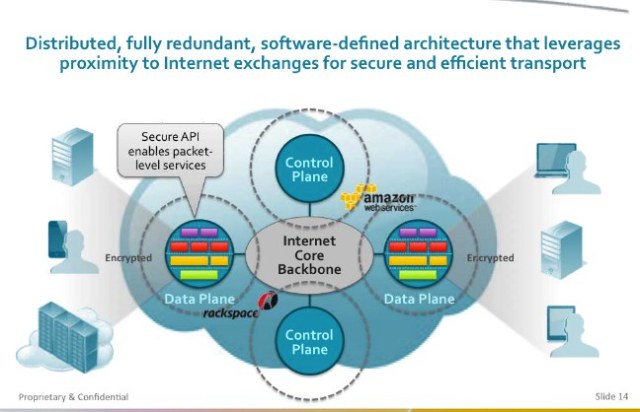Pertino today launched a service enabling any small business to go online and create a network that runs entirely in the cloud.
Pertino uses Amazon Web Service (AWS) for its service making it possible for a business of any size to create secure networks. It connects people anywhere in a manner that not long ago would have cost a small fortune in networking gear. It does this by integrating its software in AWS data centers around the world.
Customers log in to the Pertino service and connect to a data plane that routes them to the right network. A company may set up an internal network or a temporary one with contract workers. People can file share or use the network to offer a remote desktop service. Spin up networks or spin down — it’s all managed through what is called “software defined networking (SDN).”
SDN is the term for how software is abstracting and separating the elements of a network built on hardware. It symbolizes what is happening across the enterprise market. Software is replacing hardware as a means to deliver new services that are cheaper and better than what customers had the option to purchase. It’s similar to almost any market you can think of. You don’t have to go to the store anymore to rent a video. You can get it streamed over Netflix. The disc is becoming obsolete, as will, eventually, the networking gear from a company like Cisco or Juniper.
Pertino, now in a limited beta, has installed its software in data centers around the world. Three years ago, the service would not have been viable, as there just were not as many data centers in operation. In the past two years, AWS has opened new data centers in Sydney, Tokyo, Sao Paolo and the Pacific Northwest. The data center network is almost global. Africa is still an exception with limited data center infrastructure. Pertino is adding new data centers from other services besides AWS to extend its network.
Pertino is one of a number of budding SDN companies. Big Switch Networks and Nicira, now owned by VMware, are serving the enterprise market as are Citrix and a host of other vendors, Cisco included. Most though, use a customer’s corporate data center to build out an SDN infrastructure. Pertino does it all in the cloud, serving primarily the small businesses market. The service is free for up to three people with three devices. For more than three people it costs $10 per person. Aerohive and Meraki, acquired by Cisco, offer cloud networking but through Wi-Fi access points and controllers.
The company does have its limitations. For now Pertino works on Windows 7 with no mobile device support. Company executives say it will offer compatibility with more devices later this year.
Pertino is another example of the disruption happening as software replaces the expensive hardware that a business would once have had to buy from a company like Cisco to set up a robust network.


